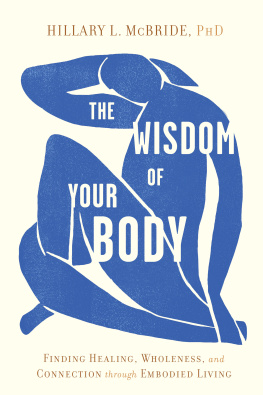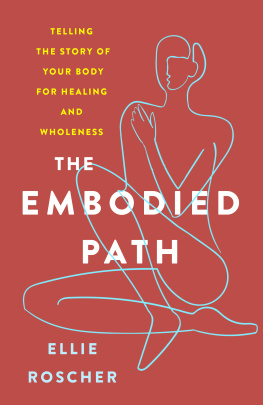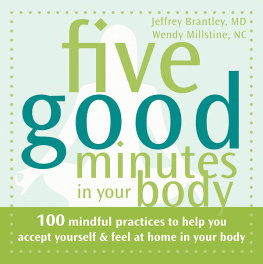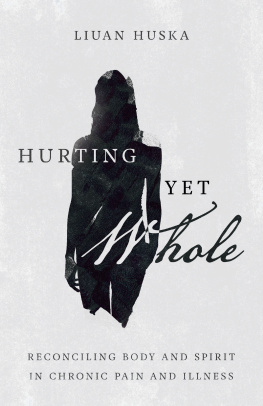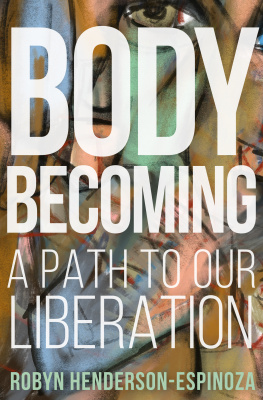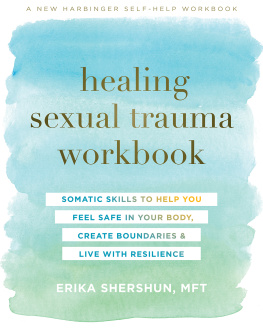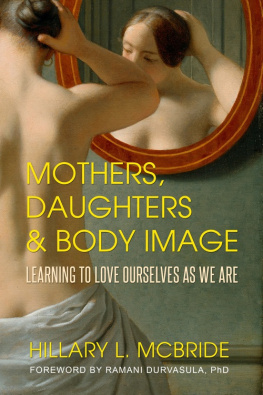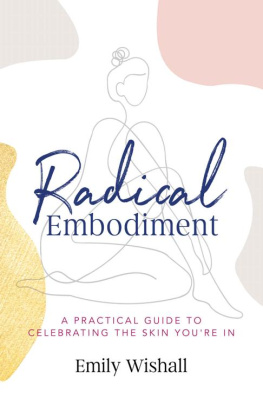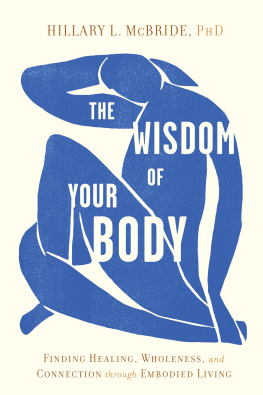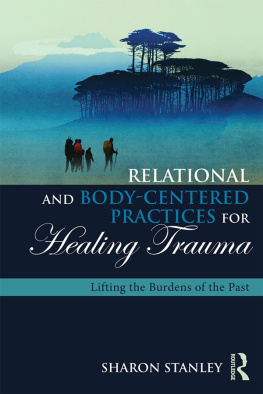For anyone who was ever told, shown, or made to believe
that your body is anything other than sacred and wise
Contents
I have a childhood memory that shimmers. It is late summer, and I am out riding bikes with my best friend. We are pedaling as fast as we can down a long stretch of even pavement with ditches on either side that separate the road from the surrounding farmland. To our right, a heron. It stands there immobile and patient, the picture of waiting. To our left, rows of raspberry bushes go on and on until they dissolve into the horizon. The sun is sinking and, as instructed, we will soon be home for dinnersomething cooking on the grill, new potato salad, and the front door open to keep the air moving through the house. But until then, we rule the road: sweat and summer sun on sticky necks, part laughing, part squealing with delight, panting breaths as we pedal hard and fast. In this moment, with my bodily senses turned all the way up, I am totally alive.
When I think about being human, the fragile, precious, and mysterious journey we each take from birth to death, I think about the body. The body is the place where all of this happens. We know that when we are young. As babies, we reach out to touch our own feet or stare at the face of a parent, and we know how to take it all in. We learn to walk, and then to run, realizing our bodies can take us somewhere fastand create an instant game of chase with someone who loves us. We learn to use one part of our body to care for another part of our body: a hand holds a toothbrush to clean our mouths, wields a hairbrush to arrange the hair on our head, or rubs soap into our skin under running water. We learn our bodies can shape the world around us as we jump in puddles and feel we are all-powerful. The delight of it all moves up and out through our lips as we giggle and laugh, telling the world around us through waves of sound that our body knows joy. All of that happens through the mystery of being a body.
Yet so many of us have forgotten about this mystery. For some of us, that forgetting is intentional and swift. We notice things that feel distracting, overwhelming, or inconvenient, and we want them to stop; or someone else tells us that the knowing knot of fear in the pit of our stomach is wrong and we need to make it go away. For others, the forgetting happens slowly over time. It accumulates in receiving disapproving looks from others, sitting still in long work or school meetings, being told to put mind over matter, or pushing the novelty and mystery of physical sensation into the furthest corners of our awareness. Or we have a defining experience where the bottom drops out and the voices in our head make pronouncements: Your body is bad, or Your body made this happen, or You cannot trust yourself. So we make silent vows to lock away the dangerous parts of us and label them not me.
No matter how or why we get there, no matter how well it may have served us, forgetting the body also costs us somethingindividually and collectively. We lose the fundamental building blocks of human thriving, connection to ourselves and others, and the fullness of pleasure, wisdom, empathy, and justice. Connection to our bodily selves allows us to internalize a sense of safety and connection that tells us who we are, what we long for, and how to be most fully alive. If each one of us is a body, then the body is the constant invitation to see ourselves as connected to each other. The person you come to see as your hero or your enemy took a breath right now, just as you did. Regardless of our circumstances or what we have been told about bodies, remembering and reuniting with our bodily selves is a radical act to undo our need to earn our worth, helping us wake up to the fact that there is something sacred right here, in this moment, always present and always available. That connection to our bodily selves is available to us in every moment. We have always been embodied, but sometimes we need a gentle invitation to remember that. We need to encounter our physicality and to know that this breath, these hands, these lungs and eyes and cerebrospinal fluid, this body is good. Consider this your invitation.
Some of what you read on these pages might feel familiar in a bodily way, as if I am putting words to things you already know. Or it might seem disorienting or incongruent with ideas you have held or have been instructed to hold. As you read, I invite you to be curious, to see every reaction as a doorway to knowing yourself better. Know that your body will be communicating, sending messages, like a quickened heartbeat, a jolt of tension, a long exhale. Please listenthese sensations are initiating a conversation with your thinking brain. Allow yourself to be curious about what that communication might mean for you or what it tells you about your past. This thoughtful engagement with bodily sensation is a form of integration essential for wholeness and healing.
Then keep the conversation going by talking to others. The end of each chapter includes some things to think about and some things to try. Use these prompts to take the content off the page and put it into conversational spaces. Whether you have a formal discussion in a book club or a casual one with a friend, please talk with people in your life about what you are reading (making the choice to share more vulnerable things with the trustworthy people). Just by doing so, you are inviting the people around you into more awareness, integrating your own learning more deeply, and changing how we talk about bodies culturally. As you will learn throughout the book, doing so is good for our individual well-being and the health of our community.
A note on the stories in this book. All the stories are real, but sometimes the names have been changed at the request of the person whose story is being told. When using an alias, I also changed or left out details to protect anonymity. I have also honored each persons choice of personal pronouns, which includes using the pronouns they, he, and/or she. All stories are used with permission.
This book speaks to issues predominant in a Western culture, a context that in different ways and at different times has both afforded me social power and restricted it because of my body. I am in an ongoing process of trying to better see the harmful ways I have been shaped by and perpetuated the dominant cultures problematic stories about bodies. Although the writing of a book must end, my personal learning will not, and for that I am grateful.
I also anticipate that our collective thinking about the body from a biological, philosophical, and sociopolitical perspective will continue to develop. In the future we will know more than we do now. I hope that knowing more will help us create a more just and loving world. In whatever ways you can, please take these ideas as a jumping-off point for you to keep learning, thinking, and experiencing yourself as a body in new, more connected, free, and compassionate ways.
Theresa Silow, a professor of somatic psychology, has said, The body is not a thing we have, but an experience we are. May this book be an invitation into an even deeper experience of who you are, and may you encounter that experience as sacred, connected, and loved.
I was thirteen the first time I threw up on purpose. I hid in the back of a dark bathroom, just beyond the reach of a buzzing fluorescent light that hung above and to the left of the bathroom stall. I was there with my eating disorder, and together we were beginning what would be a very quick descent into an even darker placethe complete eradication of myself through the disappearance of my body. Physically, parts of my body would shrink away as I became small. My freedom to think about the world outside the narrow container of my fragile mind would evaporate. My voice, both my inner knowing and the vocal sound a body makes, and my ability to want or desire anything would vanish. Soon, I would chip away the parts of myself I knew, like picking flecks of blistered paint off a wall, revealing what had once been there only by its absence.

